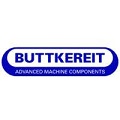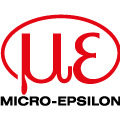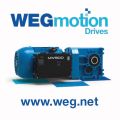
Posted to News on 22nd May 2012, 07:32
Do Education. Do Experimentation. Do Engineering!
Robert Morton, BSc, MEng, MIET, the Managing Director of National Instruments UK & Ireland, has written an open letter in which he gives his views on the needs for the next generation of engineers in the UK.

Dear Industry Colleague,
I believe many of the grand challenges that face humanity must be addressed specifically by engineers and scientists. To ensure the UK remains at the forefront of solving challenges in energy, transport, healthcare and communications, it is our responsibility, as part of the UK engineering community, to invest in the education of students.
Over the last 20 years as an engineer, I have observed that the most successful graduates share three traits: a solid understanding of technical theory, experience with tools relevant to industry and a strong talent for the hands-on nature of engineering.
During this same 20 year period engineering tasks have become significantly more complex, often closely integrating both hardware and software components. This presents challenges to educators who want to include hands-on elements into their curriculum. I see three major barriers that must be overcome to get students 'hands-on', and for experimentation to play an equal role in undergraduate engineering alongside theory and simulation:
- Cost: As engineering concepts become more complex (eg mechatronics and communications) the price of equipping a lab with relevant instrumentation can be prohibitive
- Accessibility: To get hands-on with 'real' hardware in some engineering disciplines is impractical (eg power grid technology)
- Ratio: Engineering classes are rarely one-to-one, so providing lab time, space and hardware for each student to get involved and do engineering is difficult to schedule.
The technology exists in industry to overcome these barriers. By leveraging commercial technologies to provide tools designed specifically for engineering education, powerful, accessible hardware and software can be created. This helps integrate theoretical concepts with real-world applications at a price that universities can afford.
A good example of this can be seen at the University of Manchester, where I graduated with a degree in electrical engineering. I remember the smell of my first burnt-out diode and the thrill of programming my first chip. I learnt with a text book in one hand and a soldering iron in the other. A true love and feel for engineering cannot be learnt purely from theory and simulation; students must do engineering for themselves.
Nowadays, every first year student studying EEE at the University of Manchester is given a Lab in a Bag, a data acquisition instrument capable of acquiring analogue signals at a speed of 200kS/s with 16 bit resolution. What better and more engaging way to understand signal processing than by plugging your iPod into one end, your laptop in the other and writing your own mixer in software? This could not have been possible without significant investment from industry, taking advanced technology and making student-specific instruments available at a minimal price.
Hands-on teaching has contributed to the EEE department at Manchester topping the league tables in 2011, and yet the revolution is not limited to electrical engineers. As more educational products are developed based upon industry technology, experimentation is becoming relevant and accessible to every student. I have visited universities across the UK who are implementing a software-defined, hands-on approach at undergraduate levels, even in traditionally theory-based courses, such as RF communications, control and power electronics.
Personally, I feel that investing time and money on engineering education is a priority. At National Instruments we have a strong culture of management's individual contribution and I lead by example, spending a good proportion of my time on campus or championing education at a strategy board level.
I support the long-term commitment to events such as Formula Student run by the IMechE, I encourage my colleagues to spend time ensuring the success of student projects, and I take pride in the fact that NI engineers, through their knowledge of graphical system design, are accelerating the productivity of researchers in their innovation and discovery.
Last year National Instruments revenue crossed $1billion for the first time. This milestone has caused me to stop and think about the impact of the company on people's everyday lives. I am proud that one of my legacies leading the team at National Instruments UK & Ireland will be improving the calibre of the next generation of engineers who one day will take my place.*
I have met my responsibilities as an engineering industry leader by investing time, knowledge, products and money into student education. I truly believe that by enabling students to get hands-on and actually 'do engineering' they graduate as inspired, employable innovators, equipped to solve the grand challenges we face and change all of our lives for the better.
Do Education. Do Experimentation. Do Engineering!
* Follow the link to visit the National Instruments Academic Homepage to find out more about what the company is doing and can do with students, researchers and educators.
National Instruments Corporation (UK) Ltd
Measurement House, Newbury Business Park
London Road
RG14 2PZ
UNITED KINGDOM
+44 (0)1635 523545






























